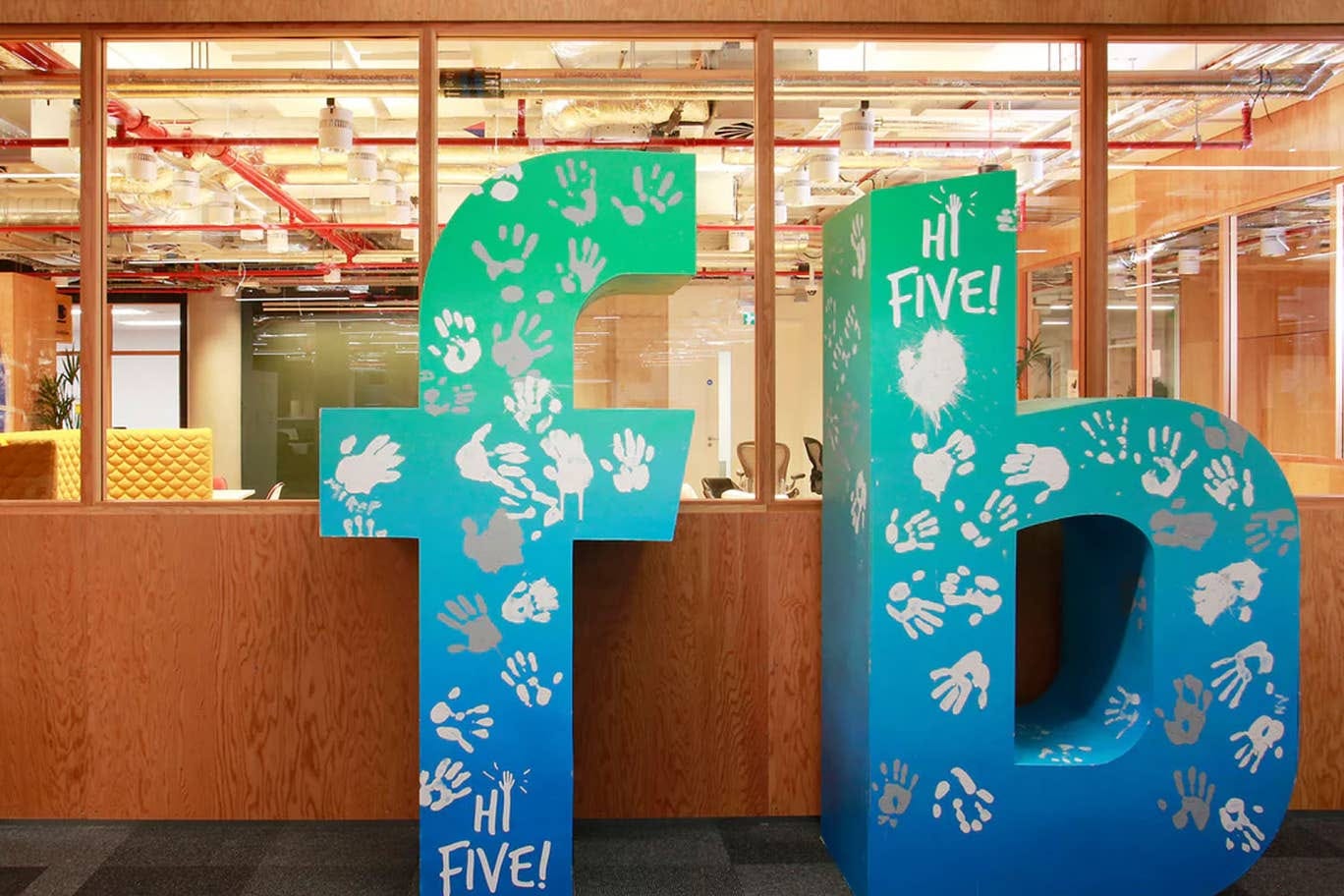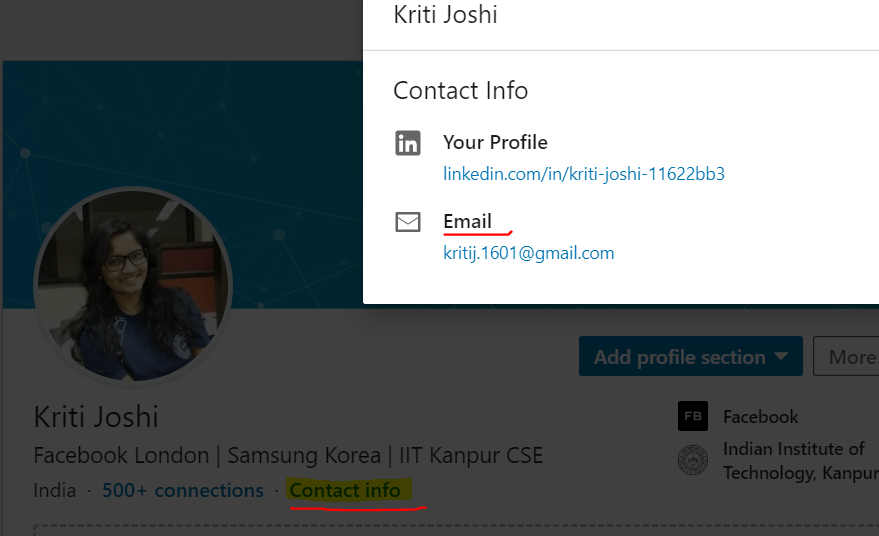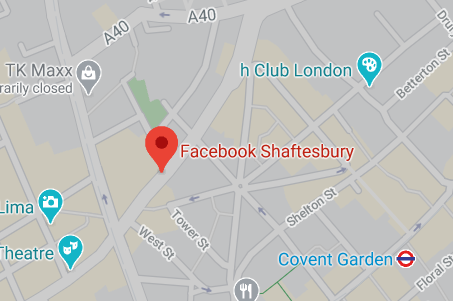Is It Easy to Get a Technical Interview From Facebook
Insights and My Experience From My Interview at Facebook
This post is to encourage people who have dreamed of something and doubted its possibility

When I decided to start my job search, I couldn't convince myself that I had a real shot at landing a job at Facebook.
Five months later, I received my offer letter.
This is a journey of expectations and the unexpected. Here I'll share with you all my experience and the insights I gained on the way.
I was working as a software engineer at Samsung Electronics for two years and had been planning to change jobs. I went on a full-fledged job hunt in the month of July, starting preparations along with applying to popular tech giants — except for Facebook. I guess I wanted to be confident enough by performing well in other companies' interviews first before taking my chances with Facebook.
A Shot in the Dark
While commuting to work or while taking a break from interview preparation, I started networking on LinkedIn. Soon it became an obsession. I searched for recruiters of companies I wanted to apply to and sent them an email (if mentioned under Contact Info on LinkedIn) or message. I wasn't expecting any solid outcome, but this process of reaching out to recruiters gave me some sort of a thrill and optimism that helped me get through the preparation phase, which, believe me, requires profound effort.

Tip: LinkedIn is a great platform to land recruiter calls, but it does require persistence. Do not hesitate to reach out to strangers. I heard back from recruiters of companies like Amazon, Microsoft, Snapchat, Bloomberg, and Apple simply by sending a message.
Luckily, an email I sent in August landed me a recruiter call from Facebook.
Tip: Getting the first recruiter call is the most time-consuming part of a job hunt. Start applying for open positions despite feeling unprepared. You can ask your recruiter for months-long preparation time before scheduling your first interview.
Ray of Hope
Expecting the best and prepared for the worst, I attended the call. The recruiter was from Facebook's AR/VR division.
Info: Facebook is divided into divisions which recruit individually, namely Facebook Engineering, Facebook AR/VR, and Facebook AI.
She asked me questions regarding my current role and work experience. For most of my career, I have been a C/C++ developer with zero experience in XR. To my dread, I didn't fit the role my recruiter had in mind. I was told that I would be only considered if I performed really well in the telephonic round because my skill set didn't exactly align with the team.
Insight: At that point, Facebook Engineering had a hiring constraint where they were only considering candidates with over seven years of experience. Probably August is the end of the recruitment cycle for Facebook, when the headcount for the year is already met and vacancies are fewer. I felt it would have been easier to apply after the month of October, at the fresh start of the recruitment cycle.
Gotta Nail It
I scheduled my technical screen two weeks later. The interview format is to solve two questions within 45 minutes. The questions were basic and easy to code (array and string problem). One topic I want to touch on right now is the test run .
Test Run: Your code is not compiled and executed in the interview. Hence, for verification, the interviewer asks to take test input and show how it would run through your code.
Tip: A test run is a good way to debug your code during an interview. Be sure to include test runs in your interview preparation.
For the interviewer's second question, I thought of two solutions and explained both to the interviewer. He then asked me to compare the solutions and analyse the advantages of one over the other. Five minutes are reserved at the end to ask questions of the interviewer. I don't think these five minutes contribute to the candidate's performance evaluation, so there's nothing to worry about.
Tip: Leetcode is known to be a really good website to prepare for interviews, and I back this. One lesser-known gem on Leetcode is Leetcode Discuss. People share their interview experiences (and questions) on this page, and believe me, questions do repeat.
Onsite Interview

Facebook's interview process is pretty quick. I heard back from the recruiter within two days and flew to London for my onsite round. A total of four interviews were scheduled
Coding interviews (x 2)
Two questions are asked which need to be solved within 45–50 minutes. Areas covered were binary trees, string, stack, and list. Discuss the solution first with the interviewer and then write your code on the whiteboard.
Tip: There are always edge cases that need to be tackled in the code, and it's not easy to take care of them while coding under pressure. One technique that has helped me get through this is the test run. Immediately after coding the solution, I tell the interviewer that I am going to test-run my solution on a generic example and debug myself first. The obvious mistakes in code are brought out by the first test run itself — better to find them yourself than to have them pointed out by the interviewer. Running through these test runs provides the time to think about edge cases which can then be incorporated into the code.
System design interview
This is an interesting round new for entry-level software engineers. The aim is to design a system from scratch. The problem statement usually looks like this:
- Design an existing product like WhatsApp, Facebook, Google search, etc.
- Design a particular feature of one of these applications; say, implement a timeline in a Facebook app.
- Design a completely hypothetical scenario; say, create a system to store logs of three servers situated far apart.
This interview definitely requires a special kind of preparation, and the most famous aid is Grokking the System Design Interview.
The good part is there are no correct answers. You should be able to justify your design choices and know the tradeoffs you have made.
Behavioral interview
This is the easiest of all, but do not take it lightly because any red flags raised in this interview can cost you your selection. The questions revolve around non-technical experiences like leadership skills, team spirit, how you tackle disagreement, etc. This set of questions is almost fixed, hence answers can be prepared.
Tip: A day before the interview, go through the list of popular behavioral questions and think about anecdotes from your professional life that support your answer to the question. Use this interview to relax in between the series of technical interviews. The confidence boost from this round helps in raising morale.
The First Disappointment
I received interview feedback after a week. I thought I had done really well, but the outcome wasn't as I expected. I had received a strong positive in two of the interviews, positive in one of the coding rounds, and negative for system design. These are the insights I gained from the experience and the feedback.
- The system design round is the decider. It's really important to present your ideas in a structured way and not miss out design details like database schema, protocol definition, etc. (refer to these points from Grokking the System Design Interview). Take the initiative and drive the discussion in a logical manner, from collecting requirements to high-level design to discussing pros and cons.
- Facebook expects candidates to excel at algorithm. They look for small mistakes and even optimizations, say, traversing the array twice instead of once. Try to give your best and do not feel complacent at any point. Do test runs, discuss edge cases, try to optimize, and be quick to write on the whiteboard. Not much of an expectation, is it? On the positive side, I felt all the questions had a beautifully simple solution which was neither hard to come up nor to code.
Second Chance
I talked to my recruiter and expressed my confusion. I was almost sure I would get an offer, but the feedback was unexpected. I never thought system design would hold this much value. Lucky me, I was scheduled for two more interviews, one system design and one coding. I flew to London again to give an interview for another company and scheduled Facebook's interviews at the same time. To be honest, I was quite exhausted by giving so many interviews over the last five months and had already gotten some negative outcomes.
These two interviews were the last ones in my job search phase, and I just wanted this phase to end. This time I had brushed up my knowledge regarding system design and had more clarity about the process. I had the coding interview first, which went really well. For system design, the problem statement was related to a feature from a popular mobile application. We discussed the design in much more detail this time, performing quantitative analysis like the number of systems required in the server, database size, etc. I gave 100% this time, and we had a good discussion.
Tip: Important sections to practice for the system design interview are: gathering requirements, defining protocol, high-level design, database schema, data size estimation, component design, and tradeoffs.
Worth It!
Feedback came after two weeks, and this time it was positive. I was offered an E4 position at Facebook Engineering. (The initial Facebook AR/VR team's occupancy wasn't vacant anymore). I think the reason why system design was given so much importance was that E4 engineers are expected to know design in addition to programming.
End note
I never expected switching jobs to be this difficult. Those of you who are struggling with it, I can relate to the frustration. Things don't always go as planned, and there is the role of chance or luck in the interview process. A Sanskrit quote from the Bhagavad Gita that keeps me sane in such times:

"You have the right to work only, but never to its fruits. Let not the fruits of action be your motive, nor let your attachment be to inaction."
Good wishes!
Source: https://betterprogramming.pub/facebook-interview-experience-and-insights-51e383f3c70d
0 Response to "Is It Easy to Get a Technical Interview From Facebook"
Post a Comment